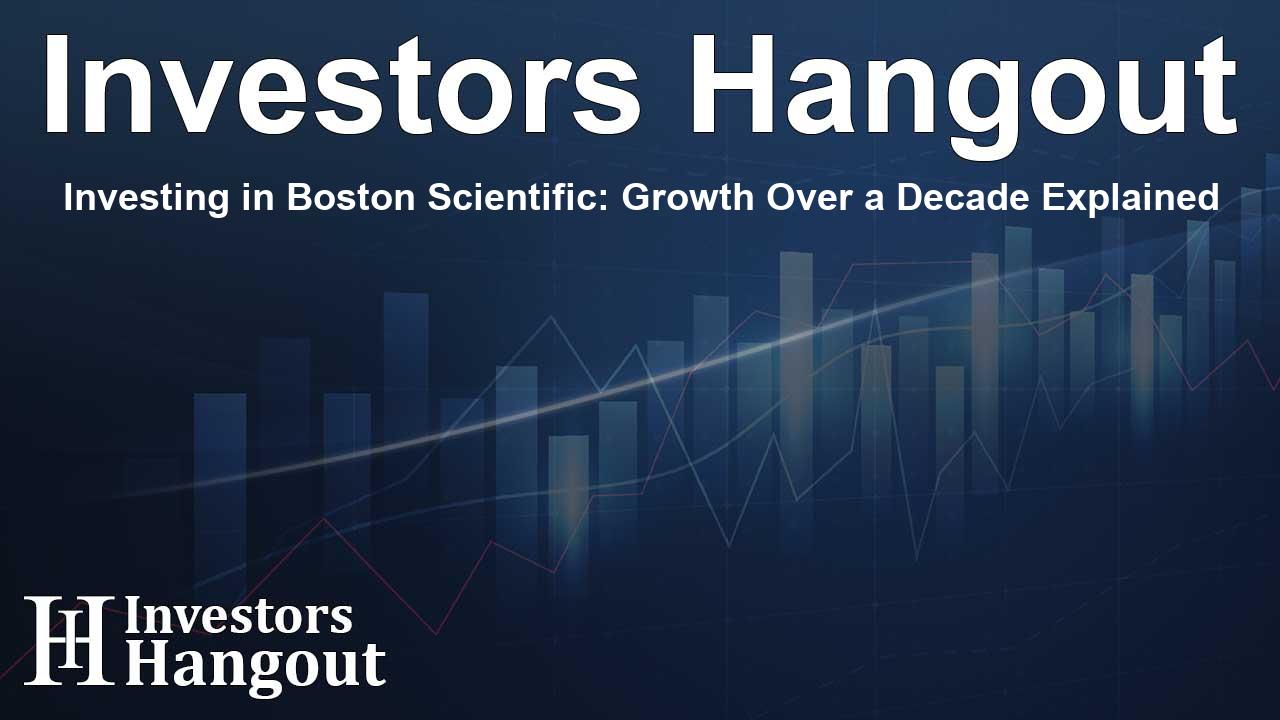Investing in Boston Scientific: Growth Over a Decade Explained

The Remarkable Growth of Boston Scientific
Boston Scientific (NYSE: BSX) has shown impressive performance over the past decade, consistently outperforming market trends. The company has achieved a remarkable annualized return of 20.37%, which translates into an outperformance of 9.12% compared to the market at large. With a current market capitalization of $131.90 billion, Boston Scientific has become a prominent player in the medical device industry.
The Impact of Investing $1000 in BSX
Consider this: if an investor had taken the plunge and purchased $1000 worth of BSX stock ten years ago, that initial investment would have grown significantly. As of now, that investment would be valued at an impressive $6,537.96 based on the stock's current price of $89.57. This stark increase showcases the potential reward of long-term investing.
Understanding Compounding Returns
The crux of the investment story surrounding Boston Scientific is the importance of compounded returns. Compounding allows investors to earn returns not only on their initial investment but also on the accumulated returns from previous years. This snowball effect can substantially enhance the growth of an investment over time.
Analyzing Boston Scientific's Decadal Performance
In analyzing Boston Scientific's performance over the last decade, one discovers the company's ability to innovate and expand in response to market needs. This trajectory of growth has not only improved financial metrics but has also established trust among investors and stakeholders.
Future Projections for Boston Scientific
As we look ahead, Boston Scientific’s commitment to innovation and consistent performance leaves many optimistic about its future. The company continues to invest in research and development, which is crucial for sustaining growth in the competitive landscape of medical devices.
Final Thoughts on Long-Term Investments
So what's the takeaway from this analysis? The growth experienced by a $1000 investment highlights the profound impact of time and the power of reinvestment. Investors who understand and embrace the concept of compounding will likely see their wealth grow substantially over time.
Frequently Asked Questions
What was the initial investment in Boston Scientific?
The initial investment mentioned was $1000 made ten years ago in Boston Scientific stock.
How much is the $1000 investment worth today?
Today, that $1000 investment would be worth about $6,537.96 based on the current stock price.
What has driven Boston Scientific’s stock performance?
Boston Scientific's strong annualized return and market performance are due to strategic growth, innovation, and effective management practices.
Why are compounding returns important for investors?
Compounding returns are vital because they allow investors to earn returns on their returns, significantly enhancing the growth of investments over time.
What should potential investors consider regarding BSX?
Investors should consider Boston Scientific’s track record, market position, and future prospects, along with their own investment goals and risk tolerance.
About The Author
Contact Lucas Young privately here. Or send an email with ATTN: Lucas Young as the subject to contact@investorshangout.com.
About Investors Hangout
Investors Hangout is a leading online stock forum for financial discussion and learning, offering a wide range of free tools and resources. It draws in traders of all levels, who exchange market knowledge, investigate trading tactics, and keep an eye on industry developments in real time. Featuring financial articles, stock message boards, quotes, charts, company profiles, and live news updates. Through cooperative learning and a wealth of informational resources, it helps users from novices creating their first portfolios to experts honing their techniques. Join Investors Hangout today: https://investorshangout.com/
The content of this article is based on factual, publicly available information and does not represent legal, financial, or investment advice. Investors Hangout does not offer financial advice, and the author is not a licensed financial advisor. Consult a qualified advisor before making any financial or investment decisions based on this article. This article should not be considered advice to purchase, sell, or hold any securities or other investments. If any of the material provided here is inaccurate, please contact us for corrections.
